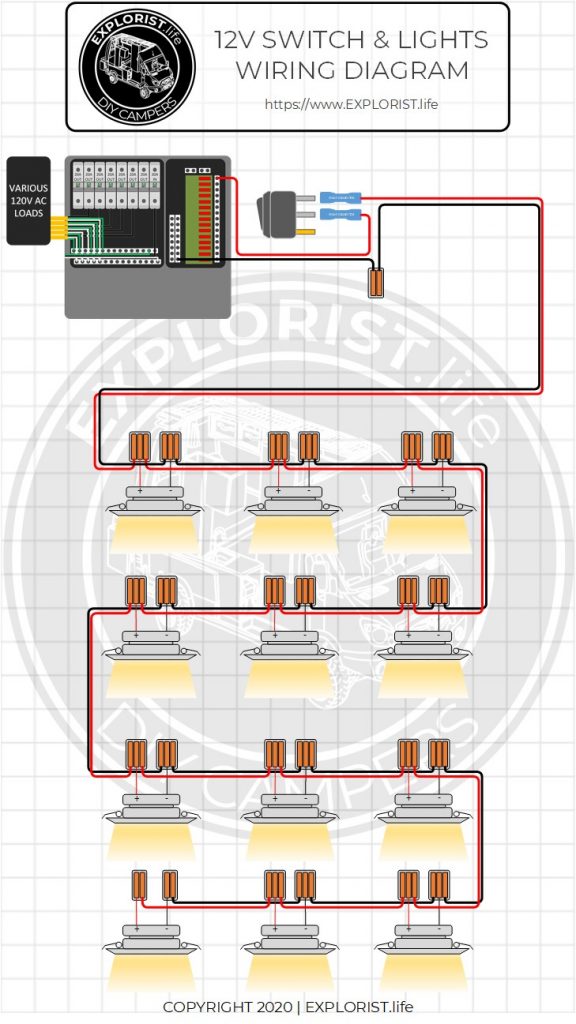When it comes to wiring diagrams for lights in a house, homeowners may feel intimidated by the prospect of taking on this kind of project. After all, it is an intricate process that requires knowledge and expertise. But with a little research and guidance, even the most novice of DIYers can feel confident tackling this project themselves.
Wiring diagrams can be used to identify different aspects of the lighting system in a house, including the type and location of lighting fixtures, switches, and outlets. They are also essential in helping identify the power source and ensure proper connections are made. Knowing how to read and use a wiring diagram is essential for anyone who plans on working on a home’s electrical system.
So, let’s look at what wiring diagrams for lights in a house involve and how to use them properly. First, we need to identify the parts of a wiring diagram. The diagram will include symbols for the lighting fixtures, switches, outlets, and circuit breaker box. It should also include labels indicating the color of the wires and their purpose. Wires are typically black, white, red, and blue, although other colors may be used depending on the installation. Each symbol and label should be clearly labeled to easily identify each part.
Once the parts have been identified, the next step is to establish the power source. This will typically be coming from the breaker box, which contains the main fuse or circuit breaker that controls the power to different circuits throughout the house. From there, the wiring diagram will provide an overview of the connection between the various lighting fixtures, switches, outlets, and other components.
Once the power source and circuit layout have been established, the wiring diagram can be used to connect the various components. This includes connecting the wires to the lighting fixtures, switches, and outlets. It is important to pay close attention to the diagrams, as incorrect wiring can lead to serious electrical issues. For example, wires that are not correctly connected may lead to overheating, sparking, and potential fire risks.
Finally, it is important to remember to turn off the power before beginning any electrical work in the home. This is to avoid any potential hazards, such as electric shocks or fires. Furthermore, it is always best to consult a qualified electrician to help troubleshoot any issues that may arise during the wiring process.
With the help of a wiring diagram, understanding the inner workings of a home’s lighting system is much easier. By following the diagrams and instructions given, even novice DIYers can feel confident in tackling this project on their own. So, don’t be intimidated by the wiring diagrams for lights in a house – with a bit of research and guidance, anyone can do it!

Lighting And Switch Layout Design Elements Electrical Telecom Cafe Floor Plan Drawing

How To Add A Light Diy

Wiring A Ceiling Fan And Light With Diagrams Ptr

Light Switch Wiring Diagrams

How To Wire A Ceiling Fan
Light Switch Wiring Diagrams Do It Yourself Help Com

Master Switch Wiring Diagram

How To Install A Light Fixture 10 Steps With Pictures Wikihow

Electrical Drawing For Architectural Plans

Lighting Circuit Diagrams For 1 2 And 3 Way Switching

3 Way Switch Wiring Diagram
House Plan And Electrical Wiring Layout Designer Home Facebook

How To Wire Lights Switches In A Diy Camper Van Electrical System Explorist Life

How To Wire A Ceiling Fan

Lighting Circuits Using Junction Bo

How To Wire A 3 Way Switch Wiring Diagram Dengarden

Light Switch Wiring Diagram

Full House Wiring Diagram Using Single Phase Line Earth Bondhon

Landscape Lighting Recessed Light Wiring Diagram House Angle Text Rectangle Png Pngwing


